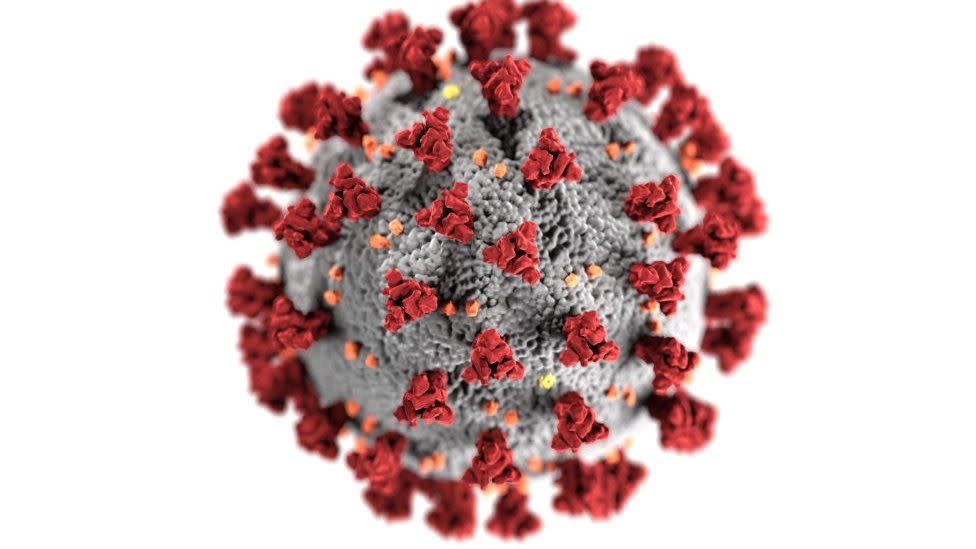A new “double mutant” variant of the coronavirus has been detected in samples collected in India.
Authorities are checking whether the variant, in which two mutations join the same virus, may be more infectious or less affected by vaccines.
About 10,787 samples from 18 Indian states also showed 771 cases of known variants – 736 from the United Kingdom, 34 from South Africa and one Brazilian.
Officials say the variants are not related to an increase in cases in India.
India recorded 47,262 cases and 275 deaths on Wednesday – the biggest daily increase this year.
The Indian Consortium SARS-CoV-2 in Genomics (INSACOG), a group of 10 national laboratories under the Ministry of Health of India, carried out genomic sequencing on the last samples. Genomic sequencing is a testing process to map the entire genetic code of an organism – in this case, the virus.
The virus’s genetic code serves as its instruction manual. Mutations in viruses are common, but most of them are insignificant and do not change your ability to transmit or cause serious infections. But some mutations, such as those of the variant strains in the United Kingdom or South Africa, can make the virus more infectious and, in some cases, even more deadly.
Virologist Shahid Jameel explained that a “double mutation in key areas of the virus’s peak protein can increase these risks and allow the virus to escape from the immune system”.
The spike protein is the part of the virus that it uses to penetrate human cells.
The government said that an analysis of the samples collected in the state of Maharashtra, in western India, showed “an increase in the fraction of samples with the E484Q and L452R mutations” compared to December last year.
“Such [double] the mutations confer immune escape and increased infectivity, “said the Ministry of Health in a statement.
Dr. Jameel added that “there may be a separate lineage in development in India with mutations L452R and E484Q coming together”.
Are double mutants a concern?
BBC health reporter Smitha Mundasad
A “double mutant virus” – is a scary phrase. Dividing it, the words suggest that Indian scientists have discovered two significant mutations – or changes – at different locations in a single variant of the virus.
This is not so surprising. Viruses mutate all the time, but the questions that need to be answered are: does the presence of this double mutation change the behavior of the virus? Will this variant be more infectious now, or will it cause more serious illnesses? And, most importantly, will current vaccines still work well against it?
Scientists will now be busy doing the necessary detective work to find out the answers. The authorities say that since the proportion of tests that returned with this double mutation is low, there is nothing to suggest that this is behind the current increase in cases.
What is clear is that this double mutation, however different it may seem, requires the same public health response. More testing, tracking intimate contacts, immediate isolation of cases, as well as masks and social detachment, will all help. Reducing pressure on India’s overburdened health system is critical.
In terms of vaccines – so far, for many worrying variants around the world, they have proven effective, though sometimes less when compared to the original viruses they were designed against. Scientists are confident that, if necessary, existing vaccines can be modified to target new mutations.
The Indian government denies that the increase in cases is related to mutations.
“Although VOCs [variants of concern] and a new double mutant variant has been found in India, these have not been detected in sufficient numbers to establish a direct relationship or explain the rapid increase in cases in some states, “said the ministry of health.
The recent report comes after several experts asked the government to step up efforts to sequence the genome.
“We need to constantly monitor and ensure that none of the variants of concern are spreading through the population. The fact that it is not happening now does not mean that it will not happen in the future. And we have to make sure that we get the evidence, “said Dr Jameel to the BBC’s Soutik Biswas earlier this month.

India has become the fifth country in the world to sequence the genome of the new coronavirus after isolating it from some of the first cases recorded in January last year.
More than 11.7 million cases and 160,000 deaths later, efforts continue to identify mutations.
The latest wave – which began this month – occurs during what some experts call the “delicate phase” for India – the health care system is already exhausted from a yearlong battle with the coronavirus.
States have already begun to reintroduce restrictions, including curfews and intermittent blockades.
Two major cities, Delhi and Mumbai, also requested rapid random tests at airports, train stations and crowded areas, such as shopping malls.
